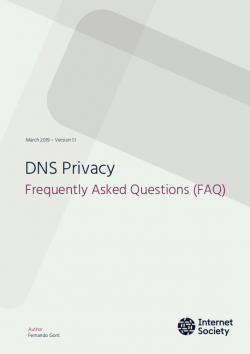Almost every time we use an Internet application, it starts with a Domain Name System (DNS) transaction to map a human-friendly domain name into a set of IP addresses that can be used to deliver packets over the Internet. Unfortunately, the DNS does not employ any mechanisms to provide confidentiality for DNS transactions, and the corresponding information can therefore easily be logged by the operators of DNS resolvers and nameservers, and eavesdropped by rogue entities and groups, thus negatively affecting user privacy. This document is organized as a list of frequently asked questions about DNS privacy, providing answers and highlighting the most important aspects of DNS privacy.
